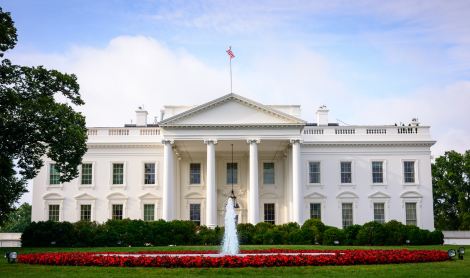As it becomes more and more clear that the impact of the COVID-19 pandemic will span months, not weeks, state legislatures are already responding. Below are some of the major issues state bills are tackling. We will be continually monitoring state legislation and posting regular weekly updates. If you have questions, please reach out to either Veronica Brooks-Uy, our Director of Policy or Jason Zwara, our Policy Manager.
You can also follow federal policy updates here, and we are compiling and creating resources for authorizers here.
As of April 20, 2020:
School Closures: Thirty-two states and the District of Columbia have ordered or recommended school closures through the remainder of the 2019-20 school year. All but one other state (Montana) have ordered or recommended closures at least through the end of April.
New Jersey: A3904 was enacted, permitting virtual instruction to count towards state’s 180-day instructional requirement and requiring schools to provide special education services “to the greatest extent practicable.”
Wisconsin: AB1038 was enacted to waive state assessment requirements for 2019-20 and cancelling school accountability ratings for the 2019-20 school year. The law also gives the Department of Public Instruction broad waiver authority, with specified restrictions if the requested waiver impacts pupil health, safety, or confidentiality. The law requires all schools to submit a report of its planned and enacted virtual instruction to the Department of Public Instruction at regular intervals during mandated closures.
As of April 6, 2020:
School Closures: All 50 states and D.C. have ordered or recommended school closures. Ten states have ordered all schools closed through the remainder of the school year, while two additional states have recommended closure for the rest of the year but have left final say up to local districts.
State Assessments: As of April 1st, the U.S. Department of Education has granted initial accountability assessment waivers to all states and D.C. Some states, including New York, have not yet determined whether mandatory high school “exit” exams will be cancelled: states have been evaluating graduation requirements flexibility.
Louisiana: Introduced SB481, waiving the state’s accountability system requirements for 2019-20, minimal instructional days and minutes, providing flexibility in administering meal service programs, and providing charter schools flexibility around student application and enrollment procedures.
Massachusetts: Introduced HD5001, requiring internet service providers to make available free broadband and data services for students whose schools, including charter schools, have closed.
Oklahoma: Enacted SB661, permitting public bodies, including charter school boards, to hold meetings through teleconferencing, with additional flexibility from public meetings requirements.
As of March 30, 2020:
School Closures: So far, all by three states have closed all schools in efforts to stem the spread of COVID-19, impacting over 55 million students. Six states have announced schools will be closed through the 2019-20 school year.
Arizona: Enacted HB2910, waiving instructional day and hour requirements, requires schools to continue providing educational opportunities (ensuring that special education services continue), creates contingency provisions for FY21 funding formulas that may be impacted by extended closures (such as transportation aid calculated by daily mileage), permits FY20 funds to be used to provide summer school extending into FY21, cancels 2019-20 assessments, designates a school’s accountability rating for 2019-20 as the same as it was in 2018-19, directs the state board of education to create graduation requirement flexibility, and modifies school reporting requirements.
Massachusetts: H4586 introduced to, among many other emergency provisions, waiver assessment requirements and provide the Board of Education flexibility in waiving and amending assessment and graduation requirements.
Ohio: HB585 introduced to waive certain education requirements, including waiving instructional hour requirements, excluding any accountability grade for 2019-20 from any sanction or penalty formula, directing the Department of Education to not rank schools, including charter schools, for the 2019-20 school year, exempting schools from 2019-20 state assessments, and waiving many graduation and promotion requirements.
Pennsylvania: SB751 amended to, among many other provisions, extend charter school tuition payments through remainder of year at pre-closure enrollment levels, waiving instructional days requirement, and giving the commissioner of education flexibility to grant additional waivers as necessary. The law would also require all schools, including charter schools, to communicate to the families of students with disabilities the school’s plan to ensure special education services continue.
As of March 23, 2020:
School Closures: So far, 46 states have closed all schools in efforts to stem the spread of COVID-19, impacting over 54 million students. Two states, Kansas and Virginia, have announced that schools will be closed through the remainder of the 2019-20 school year.
Extending and/or Cancelling State Assessments: Thirty-two states have delayed or suspended state assessments, or have already initiated a waiver request from the federal government to suspend assessments. The U.S. Department of Education has already announced a broad waiver process allowing states to easily request waivers from assessments as well as report card reporting requirements.
Waiving Instructional Time Requirements: States are waiving instructional days/minutes requirements for the 2019/20 school year, both to provide schools flexibility for the remainder of the current year and to adjust funding formulas for next year. California, for example, is considering a bill that would count average daily attendance only through February 29, 2020 for all funding formulas. A bill in Louisiana would suspend length of school day and number of teacher work day requirements. D.C. has already enacted an emergency bill that would waive student promotion requirements, while Washington has waived most graduation requirements.
Ensuring Staff Compensation & Time Off: States are taking a variety of action to ensure school staff, including hourly or part-time support staff in addition to instructional staff, are compensated and/or have available sick time. Arizona has advanced a bill that requires schools to continue paying all staff, including hourly staff, and prohibiting schools from requiring staff to use accrued vacation or sick time. New York is supplementing existing sick leave policies by ensuring most employers, including schools, provide 14 days of sick leave to any employee quarantined due to the virus. Minnesota is working to ensure hourly employees continue to receive pay during school closures.
Ensuring Food Services for Students: Several states are mandating that schools continue to provide meal services and/or providing supplemental funding to enable schools to do so, including encouraging innovative methods of ensuring school meals get to students in need. New Jersey has mandated continued meal service and empowered schools to use “school meal distribution sites” or school bus drop-off service to facilitate delivery. Maine has empowered the Governor to take necessary steps to ensure students eligible for free or reduced-price meal services continue to receive such services.


